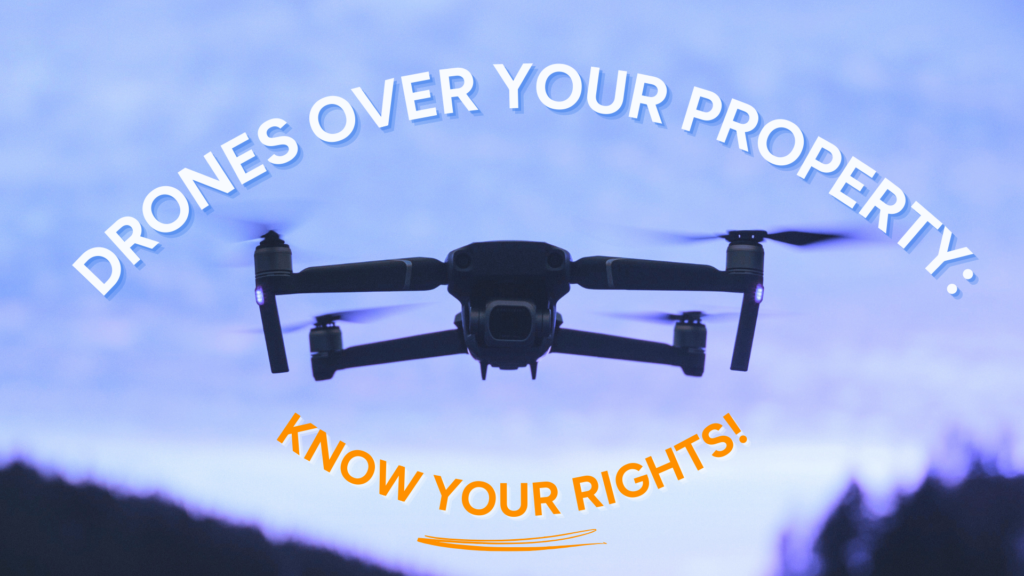
Drones are becoming more and more popular, but what happens when one flies over your property? Do you have any privacy rights? Can you do anything about it? Keep reading to learn about drone laws and what you can do to protect yourself.
Is it Legal for Drones to Fly Over My Property?
The short answer is yes, drones can legally fly over your property. But don’t worry, you still have rights! Here’s what you need to know:
- Privacy Protection: You have a right to privacy in your home and enclosed backyard. Drone operators can’t use their drones to spy on you in these private spaces.
- Nuisance Laws: If a drone keeps flying low over your property and it’s bothering you, you can report it to the police as a nuisance.
- Trespassing: In some states, flying a drone at a low altitude over your property can be considered trespassing. Look up your state’s laws to be sure.
- FAA Violations: Drones have to follow rules set by the Federal Aviation Administration (FAA), like not flying above 400 feet. If you see a drone breaking these rules, you can report the operator to the FAA.
- Legal Action: If someone keeps using a drone to invade your privacy or damages your property with a drone, you might be able to get a restraining order against them.
- State Laws: Many states have extra laws to protect people from drones. For example, in Texas and Georgia, it’s against the law to fly a drone over someone’s property without their permission.
Important Note: Even if a drone is flying over your property illegally, you can’t shoot it down! Drones are considered aircraft, and damaging one can get you in big trouble.
What Can I Do About a Drone Invading My Privacy?
If you think a drone is spying on you, here’s what you should do:
- Call the Police: If you feel unsafe or think the drone is being used for something illegal, call 911 or your local police right away.
- Document Everything: Take pictures or videos of the drone. Write down the time, date, and where it happened.
- Report to the FAA: If the drone is breaking FAA rules, like flying too high or in a restricted area, report it to the FAA online or by calling (800) 255-1111.
- Find Witnesses: If anyone else saw the drone, get their names and contact information.
- Record the Flight: If you can, try to remember how the drone was flying, how high it was, and anything else that might help identify who was operating it.
Remember, never try to take the drone down yourself. Just focus on documenting the incident and reporting it to the right authorities.
State Laws Protecting You from Drones
Many states have passed laws to protect people from drone snooping. Here are a few examples:
- Texas: It’s illegal to take pictures or videos of people or their property with a drone without permission.
- Florida: Drones can’t be used to take pictures of private property where you expect to have privacy.
- California: Using a drone to record someone without their permission is considered an invasion of privacy.
- North Carolina, Oklahoma, South Carolina, Virginia, and Wisconsin all have laws restricting drone use over private property.
Important Note: While states have their own laws, the FAA still has the final say over the airspace. This can sometimes make things confusing, so it’s a good idea to check both state and federal laws if you have questions about drones.
Disclaimer: This blog post provides general information and should not be considered legal advice. Always consult with a qualified attorney regarding your specific legal situation.


